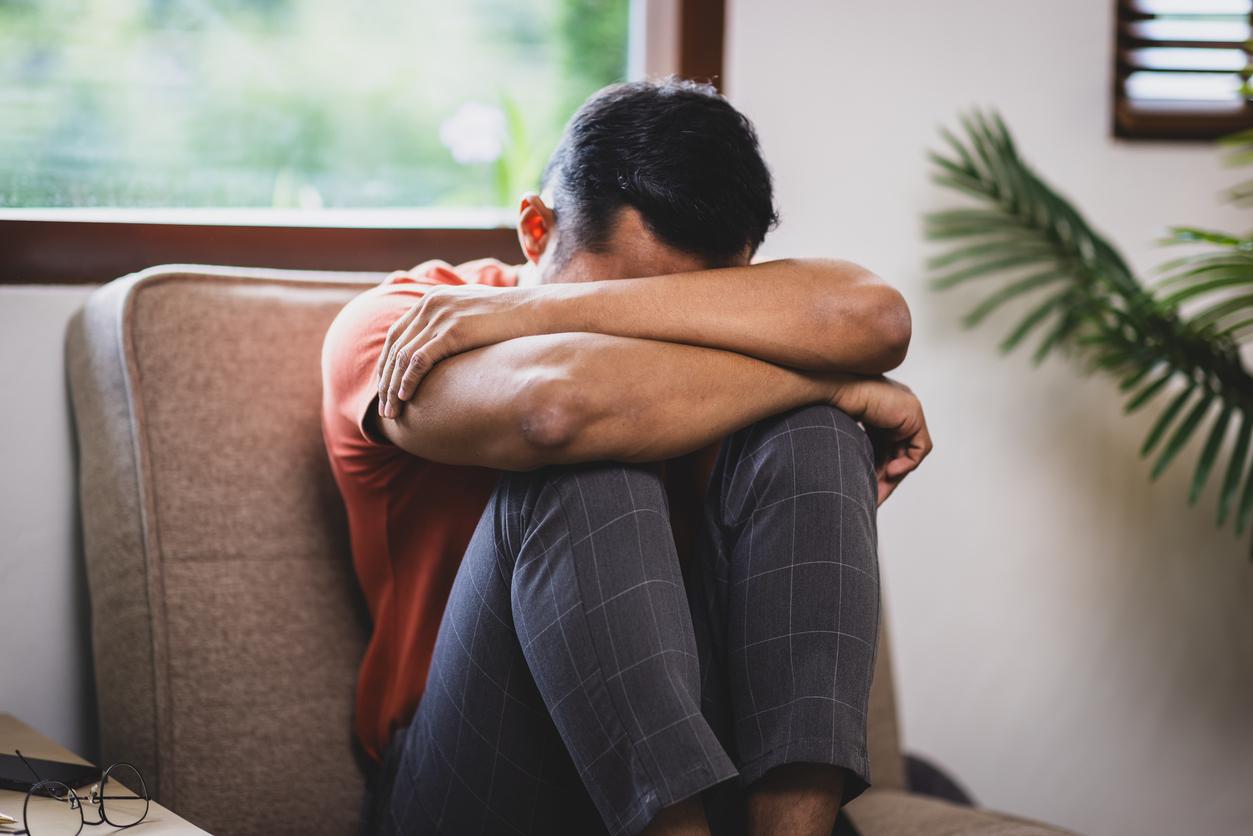Invited to France 2 on Wednesday February 26, the singer Marc Lavoine said he suffered from lypemania, a kind of deep and permanent melancholy. He would have inherited this psychiatric illness from his mother.

Melancholy in illness. Guest of the show It won’t get out of here on France 2 Wednesday February 26, the singer Marc Lavoine explained to suffer from lypémanie. The singer says he inherited from his mother this depressive psychological state determined by a deep melancholy.
“I find it important to name things as they are. Melancholy is one thing, lypemania is another form of melancholy. Depression is a sudden end, we get into something scary, and I don’t think it’s as scary as that.” details the interpreter of gun eyestoday jury of the ninth season of The Voice on TF1. “My father had a medical dictionary, he had been a nurse during the Algerian war and it was he who found the things we had from time to time. One day, when my mother went to a rest home, he opened his thing, he said ‘melancholy, lypemania, that’s what your mother has’. It was a poetic and less violent way of telling us that our mother sometimes suffered from depression”he continues.
“I was born in peacetime in the 60s with hippie parents and long hair (…) The children of that time did not have the same childhood as mine. Mine is a bourgeois melancholy”, nuance the 57-year-old singer. Before concluding, optimistically: “Honestly I’m fine, but I take care of myself every day, I try to be fine. My mother used to tell me, ‘When it’s not going well, it’s going anyway’. It’s still very beautiful life, you have to love life and choose life.”
“Hard to breathe”
This is not the first time that Marc Lavoine confides in his illness. In 2018, he had already mentioned it on the show set We are not in bed. “Lypemania is a little deeper than melancholy. My mother had this disease. (…) It’s a melancholy a little higher than the others, he said in particular. You know, melancholic people are people who have trouble breathing (…) I saw my mother wasting away little by little and breathing mechanically. She wasn’t even able to say ‘I love you’ to the people she loved, I believe the most, her children.”, had developed the artist, explaining that his mother was dying “slowly from a heartache”.
Lype comes from the Greek, it means sadness. The term lypemania was coined by the French psychiatrist Jean-Etienne Esquirol (1772-1840). Considered the father of the organization of French psychiatry (he passed the law of June 30, 1838 obliging each department to have a specialized hospital), he wrote Lypemania or melancholy in 1820. In this essay well known to specialists, he describes people who no longer want to do anything, frozen in their expectation of a being or an event that would fill the feeling of loneliness that paralyzes them and obsessed.
“The cold, the rain, the wind, the heat, make them shiver with pain and fear. Situations that surprise and disturb them are experienced as attacks directed expressly against their person. Everything attacks them”writes Esquirol.
On edge
Thus, lypemania is a chronic disease characterized by an obsession with dark thoughts, an exacerbated susceptibility, the feeling of being constantly on edge and the impression of failing everything one undertakes. At the slightest disappointment, the person imagines that everything is over and that nothing will ever go their way. As Marc Lavoine testifies, lypemania would indeed be hereditary. According to Esquirol, being born with a morose temperament and having a sad upbringing could reinforce the symptoms.
If you think you suffer from this disorder, do not panic, all is not lost. A psychiatrist will be able to diagnose you and offer you a follow-up as well as an antidepressant treatment if necessary. Finally, as to fight against depression, exposure to the sun and physical activity have already proven themselves in the management of lypemania.

.















